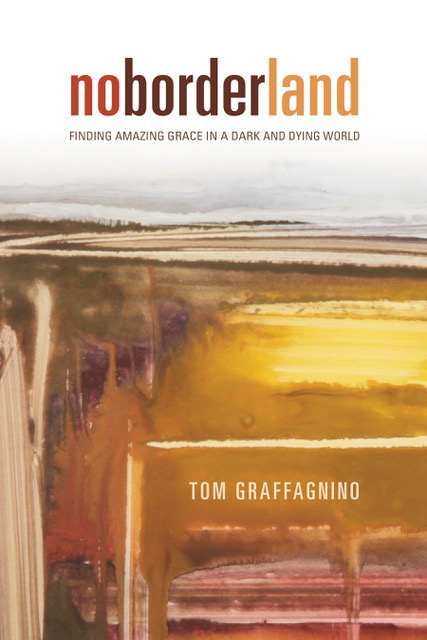C.S. Lewis
 Thursday, May 31, 2018 at 9:33PM
Thursday, May 31, 2018 at 9:33PM A man can no more diminish God's glory by refusing to worship Him than a lunatic can put out the sun by scribbling the word 'darkness' on the wall of his cell.
We live.... in a world starved for solitude, silence and privacy and therefore starved for meditation and true friendship.
You don't have a soul. You are a soul. You have a body.
I am trying here to prevent anyone saying the really foolish thing that people often say about Him: I’m ready to accept Jesus as a great moral teacher, but I don’t accept his claim to be God. That is the one thing we must not say. A man who was merely a man and said the sort of things Jesus said would not be a great moral teacher. He would either be a lunatic — on the level with the man who says he is a poached egg — or else he would be the Devil of Hell. You must make your choice. Either this man was, and is, the Son of God, or else a madman or something worse. You can shut him up for a fool, you can spit at him and kill him as a demon or you can fall at his feet and call him Lord and God, but let us not come with any patronising nonsense about his being a great human teacher. He has not left that open to us. He did not intend to. ... Now it seems to me obvious that He was neither a lunatic nor a fiend: and consequently, however strange or terrifying or unlikely it may seem, I have to accept the view that He was and is God.
Christianity, if false, is of no importance, and if true, of infinite importance. The only thing it cannot be is moderately important.
To be ignorant and simple now—not to be able to meet the enemies on their own ground- would be to throw down our weapons, and to betray our uneducated brethren who have, under God, no defense but us against the intellectual attacks of the heathen. Good philosophy must exist, if for no other reason, because bad philosophy needs to be answered.
We may ignore, but we can nowhere evade the presence of God. The world is crowded with Him.
Christianity now has to preach the diagnosis—-in itself very bad news—-before it can win the hearing for the cure.
A proud man is always looking down on things and people; and, of course, as long as you are looking down, you cannot see something that is above you.
Imagine yourself as a living house. God comes in to rebuild that house. At first, perhaps, you can understand what He is doing. He is getting the drains right and stopping the leaks in the roof and so on; you knew that those jobs needed doing and so you are not surprised. But presently He starts knocking the house about in a way that hurts abominably and does not seem to make any sense. What on earth is He up to? The explanation is that He is building quite a different house from the one you thought of – throwing out a new wing here, putting on an extra floor there, running up towers, making courtyards. You thought you were being made into a decent little cottage: but He is building a palace. He intends to come and live in it Himself.
Always century by century, item after item is transferred from the object's side of the account to the subject's. And now, in some extreme forms of behaviourism, the subject himself is discounted as merely subjective; we can only think that we think. Having eaten up everything else, he eats himself up too. And where we 'go from that' is a dark question.
There is nothing indulgent about the Moral Law. It is as hard as nails. If God is like the Moral Law, then He is not soft.
Fallen man is not simply an imperfect creature who needs improvement: he is a rebel who must lay down his arms.
A world of nice people, content in their own niceness, looking no further, turned away from God, would be just as desperately in need of salvation as a miserable world and might even be more difficult to save.
An open mind, in questions that are not ultimate, is useful. But an open mind about the ultimate foundations either of Theoretical or of Practical Reason is idiocy.
Supposing there was no intelligence behind the universe, no creative mind. In that case, nobody designed my brain for the purpose of thinking. It is merely that when the atoms inside my skull happen, for physical or chemical reasons, to arrange themselves in a certain way, this gives me, as a by-product, the sensation I call thought. But, if so, how can I trust my own thinking to be true? It's like upsetting a milk jug and hoping that the way it splashes itself will give you a map of London. But if I can't trust my own thinking, of course I can't trust the arguments leading to Atheism, and therefore have no reason to be an Atheist, or anything else. Unless I believe in God, I cannot believe in thought: so I can never use thought to disbelieve in God.
Pride leads to every other vice: it is the complete anti-God state of mind.
There is but one good; that is God. Everything else is good when it looks to Him and bad when it turns from Him. And the higher and mightier it is in the natural order, the more demoniac it will be if it rebels. It’s not out of bad mice or bad fleas you make demons, but out of bad archangels. The false religion of lust is baser than the false religion of mother-love or patriotism or art: but lust is less likely to be made into a religion.
We do not want merely to see beauty . . . We want something else which can hardly be put into words - to be united with the beauty we see, to pass into it, to receive it into ourselves, to bathe in it, to become part of it.
When a man is getting better he understands more and more clearly the evil that is still left in him. When a man is getting worse he understands his own badness less and less. A moderately bad man knows he is not very good: a thoroughly bad man thinks he is all right. This is common sense, really. You understand sleep when you are awake, not while you are sleeping. You can see mistakes in arithmetic when your mind is working properly: while you are making them you cannot see them. You can understand the nature of drunkenness when you are sober, not when you are drunk. Good people know about both good and evil: bad people do not know about either.
—Mere Christianity
God, a timeless reality, enters our time-bound history as an artist would enter his own painting.
—The First Christmas
Thirst was made for water; inquiry for truth.
But the greatest cause of verbicide is the fact that most people are obviously far more anxious to express their approval and disapproval of things than to describe them. Hence the tendency of words to become less descriptive and more evaluative; then become evaluative, while still retaining some hint of the sort of goodness or badness implied; and to end up by being purely evaluative -- useless synonyms for good or for bad.
Without sin, the universe is a Solemn Game: and there is no good game without rules.
Human history is the long terrible story of man trying to find something other than God which will make him happy
I feel that very grave dangers hang over us. This results from the apostasy of the great part of Europe from the Christian faith. Hence a worse state than the one we were in before we received the Faith. For no one returns from Christianity to the same state he was in before Christianity but into a worse state: the difference between a pagan and an apostate is the difference between an unmarried woman and an adulteress. For faith perfects nature but faith lost corrupts nature.


Reader Comments